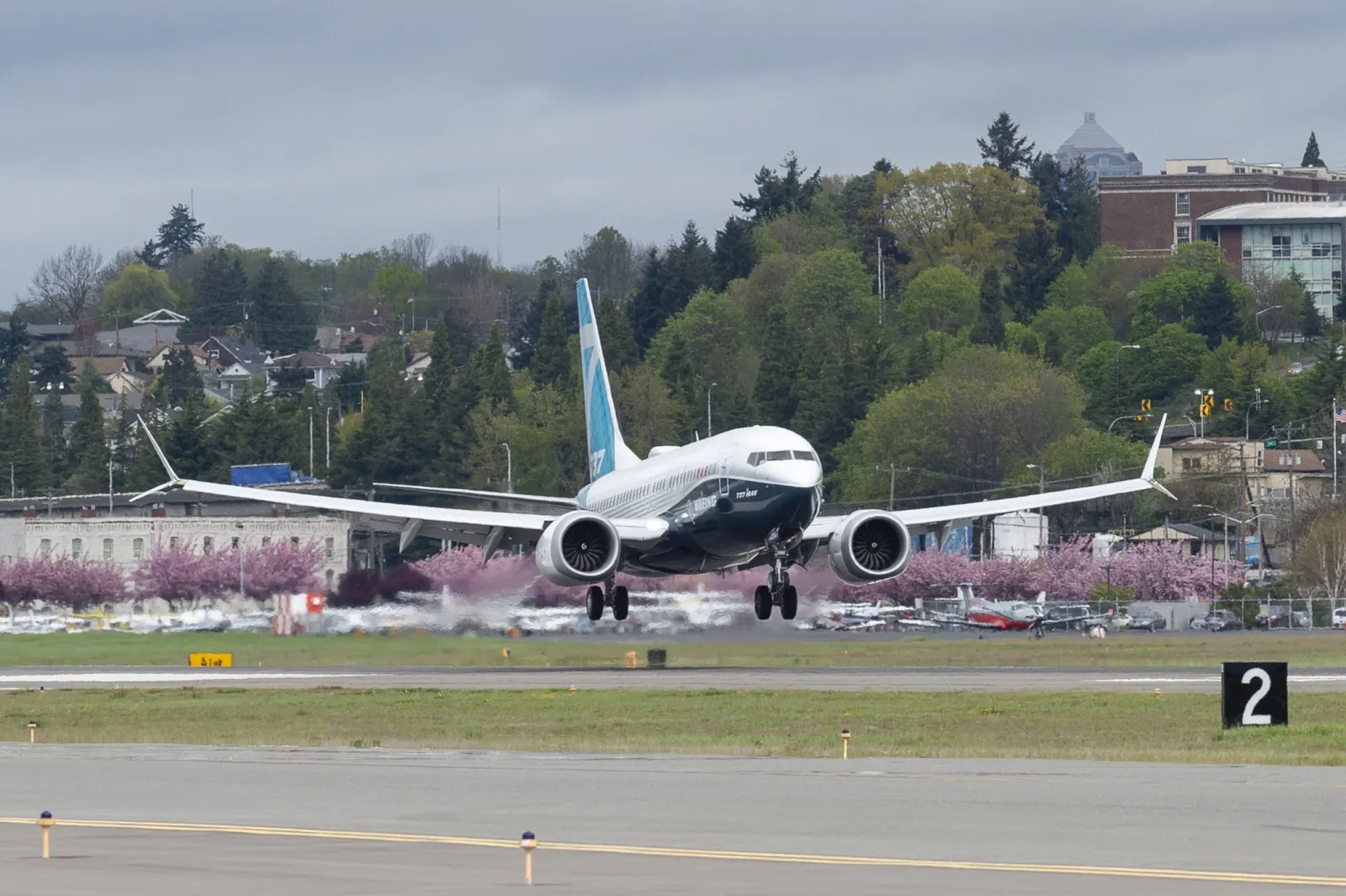
Pilot MCAS messages plunge Boeing into fresh crisis
Oct 19, 2019

Boeing is facing renewed scrutiny following the release of internal messages from pilots regarding the Maneuvering Characteristics Augmentation System (MCAS) related to the 737 MAX. These communications reveal concerns about the system's safety and effectiveness, raising alarms about the company's transparency and accountability. The revelations come amid ongoing investigations and regulatory reviews, heightening pressure on Boeing as it seeks to restore confidence in its aircraft. The situation exacerbates challenges for the aerospace giant, already grappling with the fallout from the two fatal crashes linked to MCAS, further complicating its path to recovery in the aviation market.
The recent revelations regarding the MCAS (Maneuvering Characteristics Augmentation System) messages shared by pilots have thrown Boeing into a new crisis. This situation arises from serious concerns about the safety protocols in place for their aircraft, particularly the 737 MAX series. As regulatory bodies and the public demand transparency, Boeing finds itself at a critical juncture. Below, we will explore the implications of these developments for Boeing and the aviation industry at large.
Understanding MCAS and Its Importance
MCAS was designed to enhance the handling characteristics of the Boeing 737 MAX during certain flight conditions. It aims to prevent stalls by automatically adjusting the aircraft's angle of attack. However, following two tragic crashes that resulted in the loss of 346 lives, the system has been scrutinized heavily. The MCAS messages are crucial as they provide pilots with real-time data about the system's performance, and any issues in communication can have dire consequences.
Recent Developments and Their Impact
Recent disclosures about pilot communications regarding MCAS have raised alarms among aviation experts and regulatory bodies. Pilots reported a lack of clarity in the messages received from the MCAS, leading to questions about whether they were adequately informed to respond appropriately during critical flight situations. This revelation has intensified scrutiny of Boeing's safety practices and has led to a fresh wave of investigations.
Table: Key Issues Identified in MCAS Communications
| Issue | Description | Implications |
|---|---|---|
| Inadequate Training | Pilots received insufficient training on how to handle MCAS-related issues. | Increased risk during flight operations. |
| Ambiguous Messages | The messages from MCAS lacked clarity, leading to potential misinterpretation. | Possible failure to react appropriately in emergencies. |
| Regulatory Compliance | Concerns over whether Boeing has adhered to safety regulations. | Potential for legal repercussions and loss of public trust. |
Boeing's Response to the Crisis
In light of these recent developments, Boeing has publicly committed to improving its communication and training protocols. The company is engaging with regulatory authorities to reassess the effectiveness of its current training programs. This endeavor aims to ensure that pilots are better equipped to handle any issues related to the MCAS system. Additionally, Boeing has expressed its dedication to transparency as it navigates this new crisis.
Industry Reactions
The aviation industry is watching closely as Boeing attempts to regain its footing. Industry experts are concerned that the fallout from this crisis could have long-lasting effects not only on Boeing but also on the broader aviation sector. Airlines that operate the 737 MAX are particularly anxious, as any negative news could impact their operations and customer confidence.
The Broader Implications for Aviation Safety
This crisis underscores the critical importance of effective communication in aviation safety. Pilots must receive clear and accurate information to make informed decisions, especially in emergencies. As the industry evaluates Boeing's situation, there may be calls for more stringent regulations regarding aircraft systems and pilot training.
Looking Ahead: What’s Next for Boeing?
Boeing faces a challenging road ahead as it works to address the concerns raised by the MCAS communications. The company must not only rectify its internal processes but also rebuild trust with airlines, pilots, and the flying public. The outcome of ongoing investigations will likely shape the future of Boeing and influence regulatory changes across the aviation industry.
Conclusion: A Call for Enhanced Safety Protocols
In conclusion, the revelations concerning the MCAS messages have plunged Boeing into a fresh crisis that highlights the need for enhanced safety protocols in the aviation industry. As stakeholders await the outcomes of investigations, it is essential for Boeing to implement meaningful changes that prioritize safety and restore confidence among pilots and passengers alike. The aviation industry must learn from these challenges to ensure that safety remains at the forefront of all operations.
As we look to the future, the lessons learned from Boeing's current situation could lead to significant improvements in safety standards, ultimately benefiting everyone in the aviation ecosystem.
Related Articles

Explore Thailand: The Best Islands to Visit for Paradise, Adventure, and Relaxation

The Ultimate Guide to the Best Islands in Thailand for Your Next Getaway

Do babies need passports? How to get a passport for a newborn

How to get a U.S. passport fast: here’s how to expedite the process

What is Mobile Passport Control: 5 reasons why you should use it

SENTRI vs. Global Entry: A detailed guide

Do you need a passport to go to the Bahamas? Let’s find out

Do you need a passport to go to Mexico? A detailed guide

Do you need a passport to go to Canada? We got the answer

Do You Need a Passport for a Cruise: An Essential Travel Guide

Booster Seat Requirements: All the Rules to Follow in Your Rental Car

What Are the World’s Most Powerful Passports, and How Does Yours Rank?

How to Take a Passport Photo at Home: A Helpful Guide

You've got to have heart! Southwest's new livery

Your opinion: Should water be free on low cost carriers?

Young women bolder than guys as solo travellers
